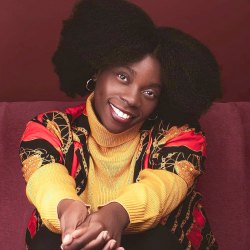This piece is part of a franchise called 'Issa Throwback,' where we celebrate the golden age of Black TV. From the best ‘90s sitcoms to Disney Channel classics, it’s time to tune back into the shows that shaped our identities.
For as long as I can remember, I’ve been putting ’90s Black sitcoms on a pedestal. If anyone stepped to me with a negative opinion about any of my favorite classics, I took it very personally and made a point to lecture them about their impact. Because, quite frankly, these shows were my window to Black joy. The Fresh Prince of Bel-Air, Martin and Family Matters are just a few that kept me cackling when I needed a pick-me-up. Not to mention my unhealthy obsession with certain characters. (Was I the only one who harbored a secret crush on Stefan Urquelle?)
Still, despite my love for these iconic shows, there’s one particular question that’s been nagging me, thanks to a recent discussion with a friend. As we talked about the rise and (sudden) fall of these Black shows after the new millennium, I considered some of my favorite contemporary shows, like Abbott Elementary and Black-ish—both of which depict the Black experience in a more realistic and compelling way—and just how good they really are. I couldn’t help but wonder, why did the ‘90s golden age of Black TV come to an end? Was the world just not ready for it? Or did these shows actually get nixed because they weren’t as good as I remember?
The thought alone left me unsettled… I mean, could nostalgia really have clouded my judgment that much?




